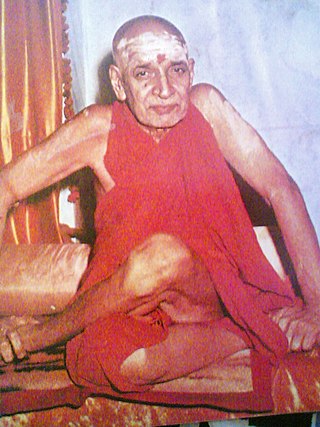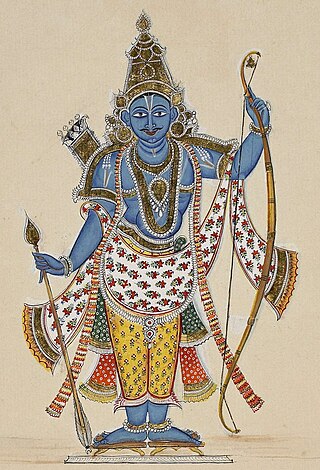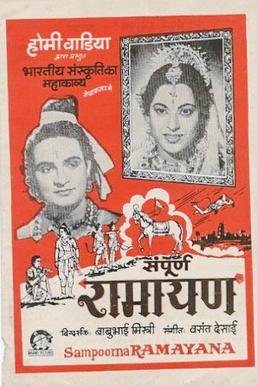
Lal Krishna Advani is an Indian politician who served as the 7th Deputy Prime Minister of India from 2002 to 2004. He is one of the co-founders of Bharatiya Janata Party (BJP) and a member of the Rashtriya Swayamsevak Sangh (RSS), a right-wing Hindu nationalist volunteer organization. He is the longest serving Minister of Home Affairs serving from 1998 to 2004. He is also the longest serving Leader of the Opposition in the Lok Sabha as well as the longest serving President of the BJP, the current ruling party of India. He was the prime ministerial candidate of the BJP during the 2009 general election.

The Bharat Rashtra Samithi, formerly known as Telangana Rashtra Samithi, is an Indian political party which is predominantly active in the state of Telangana and currently the primary opposition party in the state. It was founded on 27 April 2001 by K. Chandrashekar Rao, with a single-point agenda of creating a separate Telangana state with Hyderabad as its capital. It has been instrumental in carrying forth a sustained agitation for the granting of statehood to Telangana.

Sita, also known as Siya, Jānaki and Maithili, is a Hindu goddess and the female protagonist of the Hindu epic Ramayana. Sita is the consort of Rama, the avatar of god Vishnu, and is regarded as an avatar of goddess Lakshmi. She is the chief goddess of the Ramanandi Sampradaya and is the goddess of beauty and devotion. Sita's birthday is celebrated every year on the occasion of Sita Navami.

Swami Karpatri (1907–1980) born as Har Narayan Ojha was a Hindu saint and revivalist, who founded Akhil Bharatiya Ram Rajya Parishad. He was also a writer and lead many pro-Hindu movements such as cow protection movement. He was a sannyasi in the Hindu Dashanami monastic tradition and was of conservative branch of Hinduism.

Ashutosh Ramnarayan Neekhra, known professionally as Ashutosh Rana, is an Indian actor, producer, author and television personality. He has worked in Marathi, Telugu, Kannada, Tamil, and Hindi films along with working in various Indian television shows. He is known for his portrayal of negative roles. He has received several awards including a Filmfare OTT Award and two Filmfare Awards.
Hare Rama Hare Krishna may refer to:

Nandamuri Harikrishna was an Indian politician, actor, and film producer. He served as the Member of Parliament in the Rajya Sabha, the upper house the Indian Parliament representing the Indian state of Andhra Pradesh from 2008 to 2013 and a member of the Andhra Pradesh Legislative Assembly from 1996-1999. His film works were predominantly in Telugu cinema. Harikrishna was the fourth son of actor and former chief minister of Andhra Pradesh, N. T. Rama Rao. His sons N. T. Rama Rao Jr. and Nandamuri Kalyan Ram are actors and daughter Nandamuri Venkata Suhasini is a politician.

Jai Shri Ram is an expression in Indic languages, translating to "Glory to Lord Rama" or "Victory to Lord Rama". The proclamation has been used by Hindus as a symbol of adhering to the Hindu faith, or for projection of varied faith-centered emotions.

Vijay Bhatt was a producer-director-screenwriter of Hindi cinema, who made such films as Ram Rajya (1943), Baiju Bawra (1952), Goonj Uthi Shehnai (1959) and Himalaya Ki God Mein (1965).

Rama is a major deity in Hinduism. He is worshipped as the seventh and one of the most popular avatars of Vishnu. In Rama-centric Hindu traditions, he is considered the Supreme Being. Also considered as the ideal man, Rama is the male protagonist of the Hindu epic Ramayana. His birth is celebrated every year on Rama Navami, which falls on the ninth day of the bright half of the lunar cycle of Chaitra (March–April), the first month in the Hindu calendar.
Hindu Revolution is a term in Hindu nationalism referring to a sociopolitical movement aiming to overthrow untouchability and casteism to unified social and political community to create the foundations of a modern nation.
Hindu nationalism has been collectively referred to as the expression of political thought, based on the native social and cultural traditions of the Indian subcontinent. "Hindu nationalism" is a simplistic translation of Hindū Rāṣṭravāda. It is better described as "Hindu polity".

Rama Navami is a Hindu festival that celebrates the birth of Rama, one of the most popularly revered deities in Hinduism, also known as the seventh avatar of Vishnu. He is often held as an emblem within Hinduism for being an ideal king and human through his righteousness, good conduct and virtue. The festival falls on the ninth day of the bright half of the lunar cycle of Chaitra (March–April), the first month in the Hindu calendar. It is also part of the Chaitra Navaratri festival in spring. Rama Navami is a holiday for government employees in India.
Vij is an Indian surname of the Khatri community.

Ram Rajya is a 1943 Hindi film, directed by Vijay Bhatt, with Prem Adib and Shobhna Samarth in the lead roles of Rama And Sita. It was the third highest grossing Indian film of 1943.

Sampoorna Ramayana is a 1961 Indian Hindi-language Hindu mythological film directed by Babubhai Mistry, based on the Hindu epic Ramayana by Valmiki, starring Mahipal and Anita Guha as Rama and Sita respectively. The film was a box office hit, and became a milestone in the history of Hindu mythology. It was the second significant Hindi film based on Rama, after Vijay Bhatt's hugely popular Ram Rajya (1943). Babubhai, known for his special effects throughout his career, made extensive use of effects to enhance dramatics. The film also made lead actor Anita Guha, who played the role of Sita, a household name. Lata Mangeshkar sang two of the most top-class semi-classical songs in this movie, namely "San Sanan, Sanan, Sanana, Ja Re O Pawan" and "Badalon Barso Nayan Ki Or Se", which are still very popular.

Ram Rajya is an Indian 1967 Hindi religious film based on Valmiki's Ramayana and directed by Vijay Bhatt. The film was produced by Shankarbhai Bhatt. The music director was Vasant Desai with lyrics written by Bharat Vyas. The cinematographer was Pravin Bhatt and the film starred Bina Rai, Kumar Sen, Badri Prasad, Kanhaiyalal, Farida dadi, Anil Kumar, Jay Vijay.
Prem Adib was an Indian actor. He was acclaimed as one of the top Bollywood actors of the 1940s, along with the likes of Pahari Sanyal, Ashok Kumar, P. C. Barua and Master Vinayak. Adib is best remembered for his roles as Lord Rama in Bharat Milap (1942) and Ram Rajya (1943). These films had him paired with Shobhana Samarth as Sita, and the duo came to be celebrated as an embodiment of chaste love and "traditional Indian values". Adib and Samarth continued as the holy Rama-Sita pair in another Ramayana-based film, Rambaan (1948). From 1943 to 1950, the Adib-Samarth screen pair became popular enough to be featured on covers of religious publications and on thousands of calendars, which would be placed in Hindu temples as objects of worship.
Ramleela is a Hindu re-enactment of the life of Rama.
Hindu Rashtra, literally Hindu nation, refers to the Hindu theocratic state sought to be established by Hindutva ideologues in India.












